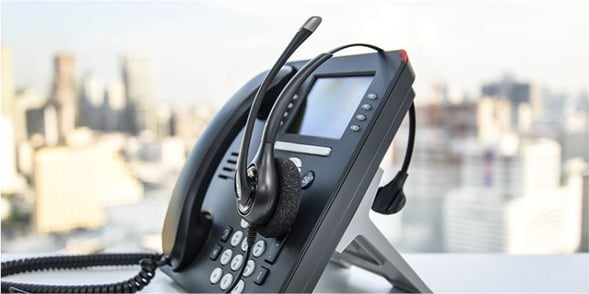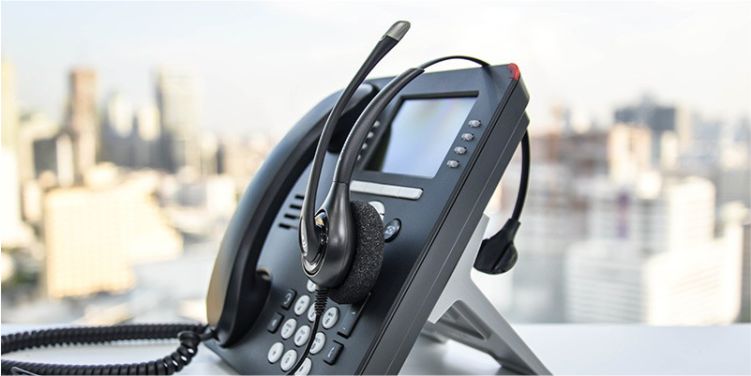
PABX or PBX prices vary greatly as a number of considerations need to be taken into account when configuring a PBX telephone switchboard system in order to meet a business’s telephony requirements. You can read more about these considerations below. We have also compiled the below table to indicate the PABX telephone system price range or variances for purchasing and renting PBX telephone systems in South Africa. These prices indicate the price of the hardware required only and do not include installation, cabling and any other costs that me be incurred when buying a PABX phone system.
How Much do PABX / PBX Phone Systems Cost?
| PBX System Category | PBX Purchase Price (ZAR) | PBX Rental Price (ZAR) |
| Small PABX System (2 - 5 Extensions) | R12 000 - R15 000 | R349 - R439 pm |
| Medium PABX System (6 - 30 Extensions) | R16 000 - R35 000 | R469 - R1 029 pm |
| Large PABX System (31 - 180 Extensions) | R36 000 - R640 000 | R1 055 - R18 799 pm |
| Enterprise PABX System (181+ Extensions) | R680 000+ | R19 499+ pm |
(Please note the prices indicated exclude vat and rental prices are calculated over a 60 month rental period at 0% escalation.)
The table above indicates the different categories of PABX systems grouped according to size and their comparative outright purchase prices and rental prices. As you can see, the monthly rental price of a PABX telephone system can start from as little as R349.00 per month for a Small PBX system and increase to as much as R19 499.00 per month for an large or enterprise PABX solution.
What are the Different PABX Pricing Categories?
Small PBX Phone System
Small PBX switchboard systems are ideal for small offices and home offices with 2 to 5 employees. These PABX telephone systems offer small businesses a host of features and functions and range from R349.00 to R439.00 per month making them extremely affordable. An outright PABX price of R15 000 includes; up to 5x extensions, 3x incoming analogue lines, 4x VoIP lines, 1x switchboard handset, 4x analogue handsets and a UPS.
Medium PBX Phone System
Accommodating 6 – 30 employees, medium PBX switchboard systems are suitable for businesses who foresee growth in the near future and will therefore require expansion while still remaining cost effective. A PBX system that costs around R35 000 outright will get you; up to 30 extensions, 6x incoming analogue lines, 8x VoIP lines, 1x switchboard handset, 4x executive handsets, 25x analogue handsets and a UPS.
Large PBX Phone System
Optimise your businesses’ productivity with a large PBX switchboard system, catering for 31 to 200 employees. These PABX phone systems are completely scalable and will ensure all your businesses’ telephony needs are met. A large PBX system price for an outright purchase of R640 000 will provide you with; 60x VoIP lines, 1x switchboard, a CTI switchboard, a Telephone Management System, 179x IP handsets, a server cabinet and a UPS.
Enterprise PBX Phone System
Offering enhanced capabilities, increased security and complete redundancy, an Enterprise PBX switchboard system caters for large enterprises and provides the ultimate reliability and scalability needed for corporate telephony. Renting an enterprise PABX telephone system can start from R19 499.00 per month with the outright purchase price of this type of PBX system starts around R680 000.00.
Which Factors Determine PABX Prices?
A number of different factors will determine a PBX systems price, these include, but are not limited to:
- The type of PBX i.e Analogue, IP, Hybrid or Hosted
- How many users (extensions) the PABX needs to cater for
- How many incoming lines the PBX needs
- Whether or not voice connectivity is needed and if so, the type of connectivity
- The number and type of handsets to be provided
- If new cabling is required or if there is existing cabling
- If additonal features such as voicemail, auto attendant, conferencing, call recording, etc are required
What are the Advantages of Renting a PABX Telephone System?
- Conserving your current cash flow
- Reducing the total cost of ownership of the PBX system
- Easier monthly forecasting
- Hardware lifecycle management
- Availability of new, improved technology
- Savings on tax
- Flexibility in scalability


